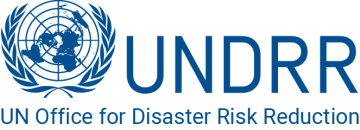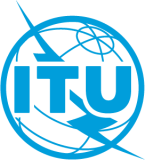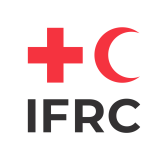

- Climate Resilience and Adaptation
- Disaster Risk Reduction
- Forecasting
- Service Delivery
- Early Warnings
Project background
This Sida-funded, inter-pillar project is led by the United Nations Office for Disaster Risk Reduction (UNDRR) and designed to support the rollout of the Early Warnings for All (EW4All) Initiative. WMO is leading Pillar 2 activities—focused on observation, monitoring, analysis, and forecasting. The project aims to enhance the quality and accessibility of observation data, improve forecasting capabilities for priority hazards, and produce actionable, impact-based warnings, thereby strengthening national Multi-Hazard Early Warning Systems (MHEWS). This initiative plays a vital role in establishing a robust foundation for early warning systems across participating countries.
Objective(s)
To scale up and strengthen national Multi-Hazard Early Warning Systems (MHEWS) efforts through the implementation of the Early Warnings for All Initiative. Specifically, it aims to improve the quality of country monitoring, observation and forecasting capabilities through the targeted implementation of Pillar 2 of EW4All.
Outputs
- As an input to the national roadmap, the current status of pillar 2 on detection, observation, monitoring, analysis and forecasting systems is reviewed and documented, including gaps, priorities, and needs;
- Technical advice provided to aid the implementation of pillar 2 on observation, monitoring, analysis and forecasting, as identified by the national road map;
- Strengthened national capacity to coordinate and implement pillar 2 of the national road map on detection, observation, monitoring, analysis and forecasting; and
- National capacities related to pillar 2 on observation, monitoring, analysis and forecasting enhanced.
Expected outcomes
- Increased Availability of Quality Observation Data: The project will work towards ensuring a higher quantity and quality of observation data to assess and monitor priority hazards effectively.
- Enhanced Data Exchange and Access: Efforts will be made to improve the exchange and accessibility of data for forecasting and warning systems, fostering a more collaborative and interconnected approach.
- Improved Capabilities for Forecasting: The project will focus on increasing the capabilities to forecast all priority hydrometeorological hazards, addressing gaps in forecasting capacities among the participating countries.
- Production of Impact-Based Forecasts and Warnings: A key outcome will be the development and dissemination of impact-based forecasts and warnings, facilitating more targeted and actionable early warnings.
- By achieving these specific outcomes, the project endeavors to fortify the foundation of Early Warning Systems in the selected countries, enabling them to better understand, prepare for, and respond to the challenges posed by various hazards.
Achievements
• UN to UN Collaboration: In Bangladesh, Mozambique, Haiti, and Somalia, UN agencies are collaborating closely to strengthen climate resilience and early warning systems, ensuring coordinated efforts for impactful outcomes.
• South to South Collaboration: Nigeria is partnering with Liberia in a South-South collaboration, leveraging technical expertise and shared experiences to enhance meteorological and hydrological services. In South Asia, Bangladesh is working closely with Nepal and India, supported by UN agencies, IFRC and regional organizations. Mozambique is working closely with the South African Weather Service.
• High-Level Political Support: Mozambique has garnered high-level political support for EW4All, underscoring commitment at the national level to address environmental challenges effectively.
• Continued Support in Fragile and Conflict-Affected Settings (FCVs): In Haiti and Somalia, project activities are ongoing, despite the challenging circumstances posed by fragile and conflict-affected conditions. This has been made possible thanks to the good relationship WMO sustains with the government and national actors.
• Collaboration currently underway between a multitude of UN partners – UNEP, WFP, WMO, UNDRR in Haiti to develop a new CREWS-GCF Scale-up project, which will make significant efforts in strengthening Haiti’s Early Warning System.





